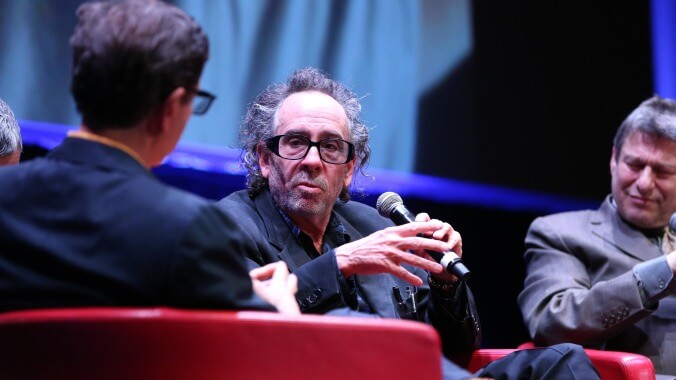Tim Burton says his Batman now looks like "a lighthearted romp"
Burton says he starts "laughing and crying" when asked about modern Batman movies, after years of being told his 1989 film was "too dark"

If you haven’t watched Tim Burton’s 1989 Batman in a minute, it’s worth remembering that it’s a remarkably weird movie: Structurally, it’s built, at least in its first act, as an investigative thriller, with Gotham journalists investigating some weirdo named Bruce Wayne. You see a guy get electrocuted into a smoking husk in the early going. It ends with Michael Keaton’s Batman quite comfortably murdering Jack Nicholson’s Joker. It’s not, say, Batman Returns dark, but still: Pretty grim!
Even so: Burton laughed this week, when asked about how his movie stacks up to later installments in the franchise, calling it “a lighthearted romp” in comparison. Burton was speaking at a masterclass at France’s Lumière Festival today, discussing how the superhero boom he helped ignite has changed over the years. “When I first did Batman, I’d never heard of the word ‘franchise,” Burton told the crowd. “After that, it became something else.”
Burton says he gets asked, from time to time, about new Batman movies, presumably meaning films like Christopher Nolan’s Dark Knight trilogy, or Matt Reeves’ recent The Batman:
The thing that is funny about it now is, people go “What do you think of the new Batman?” and I start laughing and crying because I go back to a time capsule, where pretty much every day the studios were saying, “It’s too dark, it’s too dark.” Now it looks like a lighthearted romp.
Per Deadline, Burton—whose latest project is Netflix’s Wednesday TV show, which he serves as an executive producer on—also talked about some of the disappointments of his career, including “a musical version of the slasher movie House Of Wax with Michael Jackson.” Burton, to the crowd: “They said ‘no’. Can you believe that?” Meanwhile, of the modern movie business: “I’ve been around for a long time. Studios used to be run by people who had made movies, or at least had some connection to it, but then it was taken over by business and lawyers so people who don’t really understand or have a feel for film.”